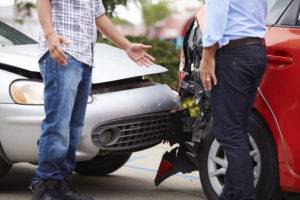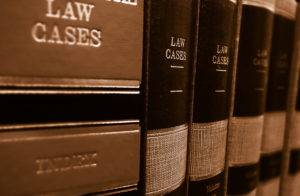Florida’s Good Samaritan Act states that individuals rendering emergency treatment to those in medical distress are not liable for damages that may result.
The Good Samaritan Act encourages people to step in to aid others. If they help someone injured or ill in an emergency, they don’t have to fear being subject to lawsuits. This is because the Act protects them if any damages occur during their assistance. The law applies to medical professionals and even people who don’t have formal training.
What Is Florida’s Good Samaritan Act?
According to Florida Statute 768.13, the Good Samaritan Act provides immunity to anyone rendering emergency aid to people suffering health crises if something goes wrong. If the individual suffers further injury, the person providing aid cannot be held liable as long as they acted reasonably.
Need free legal help in Florida?
We specialize in personal injury claims.

Scope and Application of the Law in Florida
It’s important to understand the scope and application of the law in Florida. This requires knowing who is considered a good samaritan and when the law applies.
Who Is Considered a Good Samaritan?
In Florida, a good samaritan is a person licensed to practice medicine like a doctor. However, even laypeople who provide aid in good faith to someone in distress are considered samaritans. This applies to the public and even hospital settings.
When Does the Law Apply?
The Good Samaritan law applies when a person assists someone else in good faith while that individual is in a medical emergency. Medical professionals, people with training and others who step up to help another person are shielded from liability if the victim suffers damages. According to Florida Statute 893.21, this also applies to someone helping a person suffering an overdose or alcohol-related emergency.
Legal Protections Offered in Florida
Florida’s Good Samaritan Act provides legal protections. This includes immunity from liability, but there are limitations.
Immunity from Liability
Individuals who render emergency aid to those in medical crises are immune from liability when they act in good faith. If a person acts with gross negligence or malicious intent, they are not protected from being held liable in a lawsuit.
Limitations of Liability
There are limitations of liability under the Good Samaritan law. The Act doesn’t protect anyone who attempts to render aid when the victim objects. If someone acts with gross negligence or intentionally harms a person in a medical emergency, they can be held liable.
Duties and Responsibilities of Bystanders in Florida
In Florida, bystanders have certain duties and responsibilities under the Good Samaritan law. They include expected reasonable actions and knowing when to call for professional help.
Reasonable Actions Expected
Bystanders are obligated to act in reasonable ways. They can move a victim to a safe spot from a dangerous area, render CPR or apply a tourniquet to stop someone from bleeding. If a bystander wishes to aid a conscious victim, they must get consent.
When to Call for Professional Help
Under the Good Samaritan law, bystanders must know when to call for professional help. Although they are not required to render aid, calling 911 during an emergency is crucial. If a person wants to help but is unable to, they must call a professional.
Need free legal help in Florida?
We specialize in personal injury claims.

Criticisms and Controversies Surrounding the Law in Florida
There are criticisms and controversies surrounding Florida’s Good Samaritan law. This includes arguments against it and public perception and awareness issues.
Arguments Against the Good Samaritan Act
One common argument against the Good Samaritan Act is that it makes people believe they’re required to assist someone in distress. Many people want to mind their own business. Another is that some victims might have a personal philosophy of letting nature take its course. Some might even have do-not-resuscitate orders.
Public Perception and Awareness Issues
There are public perception and awareness issues about the Good Samaritan Act. Many people worry about problems arising if they help someone in a medical emergency. They might fear being sued if they do something wrong. Some might also expect compensation for helping a person in a crisis.
Protections for Specific Individuals in Florida
Protections are available for specific individuals under the Good Samaritan law. This includes off-duty first responders and medical professionals. You should also understand the difference between trained personnel vs. laypersons.
Off-Duty First Responders
Off-duty first responders are protected from liability when assisting a person in a medical emergency in Florida. The Good Samaritan law ensures they are immune when acting in good faith to help another person even if damages result.
Medical Professionals
Medical professionals are not liable for damages if they assist an injured or ill person. This stands regardless of whether in a public or hospital setting.
Trained Personnel vs. Laypersons
Trained personnel have formal education in healthcare to provide certain types of care. Laypersons are not professionals in the field, but some may have training in basic lifesaving procedures like the Heimlich maneuver or CPR.
Limitations of the Good Samaritan Act in Florida
There are limitations to Florida’s Good Samaritan Act. They include situations not covered by immunity and jurisdictional differences within the U.S.
Situations Not Covered By Immunity
Certain situations are not covered by immunity in the Good Samaritan law. Anything involving gross negligence or wanton recklessness allows a person to be held civilly liable.
Jurisdictional Differences within the U.S.
Throughout the U.S., there are differences in Good Samaritan laws by jurisdiction. Some states only require medical professionals to help while others require bystanders to assist someone in a crisis. However, most states don’t require people to do anything to help a victim.
Frequently Asked Questions
Is the Good Samaritan Law Different in Florida Than Other States?
Florida’s Good Samaritan law is different than that of other states. Other states have their own unique takes on the law.
What Is the Purpose of the Good Samaritan Act?
The purpose of the Good Samaritan Act is to encourage people to help those in need without worrying they’ll be sued if something goes awry.
What Do Good Samaritan Laws Not Offer Protection From?
Good Samaritan laws don’t offer protection from recklessness, malicious intent or gross negligence.
What Is the Good Samaritan Overdose Law in Florida?
The Good Samaritan overdose law in Florida allows a person to secure medical assistance for someone suffering an overdose or alcohol-related emergency. You cannot be charged with a crime even if you are doing drugs if you help another person in such a crisis.
How Does the Act Apply to Businesses and Organizations?
According to Florida Statute 768.136, businesses and organizations are not liable for damages from food donated in good faith. If a person has allergies or food has spoiled, donors cannot be sued.
Need free legal help in Florida?
We specialize in personal injury claims.






